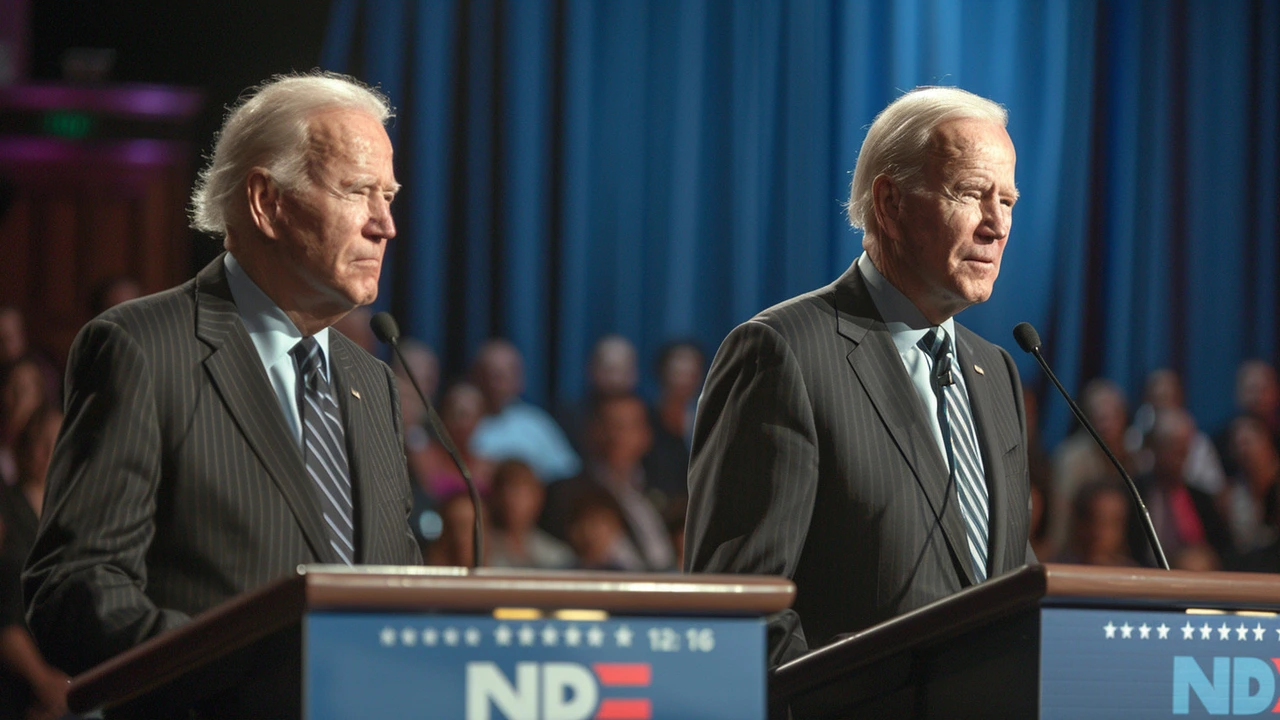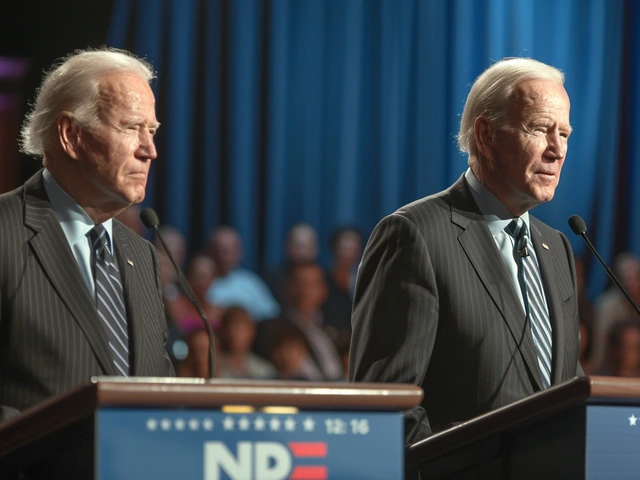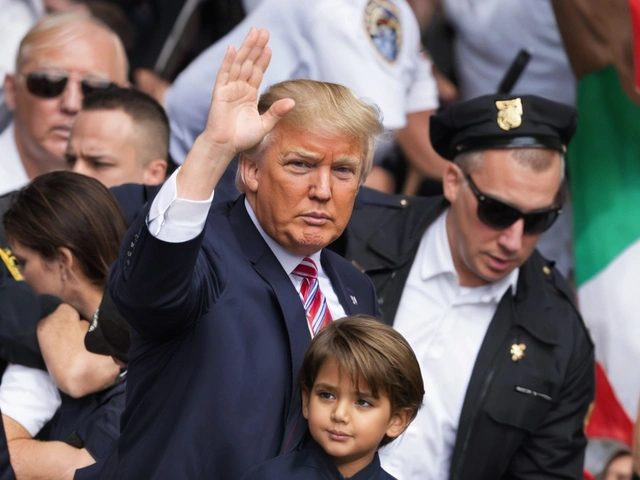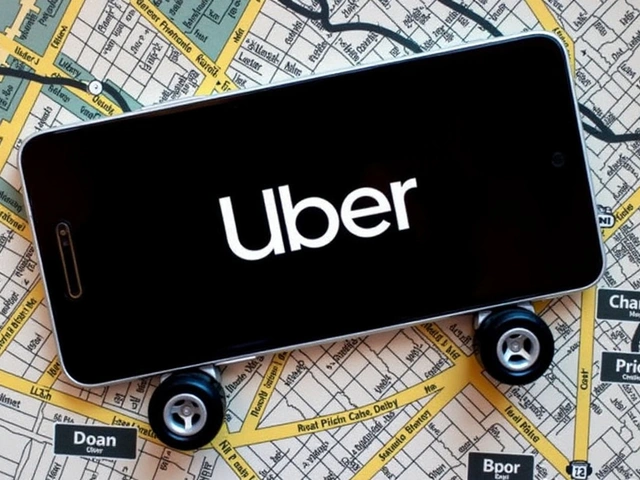
Impact on 2024 Presidential Race if Joe Biden or Donald Trump Withdraws: Potential Consequences
What Happens if Joe Biden or Donald Trump Withdraws From the 2024 Presidential Race?
The 2024 United States presidential race is already a hotbed of speculation, and the political landscape is charged with anticipation. The potential withdrawal of either Joe Biden or Donald Trump, the presumptive nominees for the Democratic and Republican parties, respectively, adds to the intrigue. What would the political consequence be if one of these heavyweights were to step down?
On the Democratic Side
Joe Biden's term as the 46th President of the United States has not been without its challenges, and his age and recent public blunders have raised questions about his ability to contest the 2024 elections. If Biden were to withdraw, the question arises: Who steps up? Vice President Kamala Harris seems an obvious choice for many. As the first female, Black, and South Asian Vice President, her historic election and her significant role in the administration position her as a natural successor. Harris also enjoys substantial appeal among progressive voters. Her experience as a former senator adds another layer of credibility, making her a frontrunner.
Another strong contender within the Democratic party is Pete Buttigieg, the Secretary of Transportation. Buttigieg, who has proven to be a charismatic and capable leader, could infuse new energy and appeal to younger demographics, which is crucial in a presidential campaign. His youth and dynamism set him apart, and he has made considerable strides in modernizing America's infrastructure, a key component in the Biden administration.
Gavin Newsom, the Governor of California, also stands as a robust candidate. Newsom embodies the progressive stance on a range of issues and has demonstrated strong leadership during crises, such as the COVID-19 pandemic. His importance within the Democratic party and his ability to mobilize progressive voters make him a formidable candidate. Given California's significance in national politics, Newsom's candidacy could be a game-changer.
On the Republican Side
Donald Trump's legal issues, notably the potential sentencing in the Stormy Daniels hush money case, have cast a shadow over his candidacy. Should Trump step down, Florida Governor Ron DeSantis is viewed as a leading figure to carry the torch. DeSantis has earned recognition for his steadfast support for Trump's policies and for his governance of Florida, making him a prominent figure within the party. His strong stance on conservative issues and his alignment with Trump's vision positions him as a natural successor.
Nikki Haley, the former UN Ambassador under Trump, offers a different appeal. Her diplomatic background and moderate views could help bridge gaps within the party and attract a broader audience. Haley's tenure as the Governor of South Carolina showcased her leadership skills, and her ability to appeal to both the party's base and moderate voters could be crucial in a presidential campaign.
Finally, Mike Pence, who served as Vice President during Trump's administration, remains a significant figure among conservatives who value stability and continuity. Pence's alignment with traditional conservative values and his experience in the executive branch bolster his candidacy. His ability to navigate the complexities of national politics, combined with his strong support among traditional Republicans, makes him a viable candidate.
Repercussions of a Potential Withdrawal
The withdrawal of either Biden or Trump would have significant implications for the nomination process for their respective parties. Both are seen as their parties' presumptive nominees and are anticipated to be officially confirmed at their national conventions. A sudden withdrawal would necessitate a swift reorganization and could open up the field to a range of potential candidates. Such a scenario could dramatically reshape the political landscape, impacting not only the presidential race but also down-ballot races and the overall strategy of each party.
For the Democrats, a new primary contest could emerge, where candidates like Harris, Buttigieg, and Newsom would vie for the nomination. This could reinvigorate the party, bringing fresh perspectives and potentially mobilizing voters who might have been less enthusiastic. However, it could also lead to internal divisions and a prolonged primary battle.
Conversely, for the Republicans, the withdrawal of Trump could lead to a similar scramble. DeSantis, Haley, and Pence would need to consolidate support quickly. This scenario could see the Republican party emphasizing a unified message to maintain the enthusiasm of the Trump base while also appealing to a broader electorate.
The potential withdrawal of a major candidate underscores the volatility and unpredictable nature of political campaigns. The repercussions would extend beyond the immediate candidates, influencing party strategies, voter engagement, and potentially the policies that resonate with the American public. Ultimately, the nature of these withdrawals, whether by choice or circumstance, could have lasting effects on the political landscape of the United States.
Age and Health Concerns, Legal Issues: The Context
Joe Biden is currently the oldest person to serve as President of the United States. As he approaches his 82nd birthday, concerns regarding his health and cognitive abilities have been increasingly prominent in political discourse. Public blunders and the natural toll of aging have not escaped the notice of either his supporters or his detractors. While Biden has consistently affirmed his intention to run for a second term, these concerns cannot be ignored.
Donald Trump, on the other hand, faces a different set of challenges. His legal battles are a significant concern, with the Stormy Daniels hush money case being just one of several ongoing legal issues. The uncertain outcome of these cases could impact his eligibility or capability to continue campaigning. For Trump, who has built his political persona on defiance and resilience, these legal entanglements pose substantial risks to his bid for the presidency.
The potential withdrawal of either candidate underlines the broader uncertainties in the electoral landscape. Political campaigns are inherently unpredictable, and unforeseen developments can dramatically alter the course of the race. For both parties, having well-prepared contingency plans and potential candidates ready to step up is crucial.
Conclusion: Navigating a Complex Political Terrain
The U.S. political arena is as dynamic as it is unpredictable. The potential withdrawal of Joe Biden or Donald Trump from the 2024 presidential race underscores the fluid nature of political campaigns. For Democrats, figures like Kamala Harris, Pete Buttigieg, and Gavin Newsom represent strong alternatives with the potential to invigorate the party and appeal to a wide range of voters. Republicans, on the other hand, have Ron DeSantis, Nikki Haley, and Mike Pence as prominent figures ready to carry forward the party's agenda.
The repercussions of such withdrawals extend far beyond the candidates themselves. Both parties would need to navigate complex primary contests, devise new strategies, and work to unify their bases. The potential for internal divisions and shifts in voter dynamics adds another layer of complexity. As the 2024 election cycle progresses, the possibility of such significant changes highlights the importance of adaptability and preparedness in navigating the ever-evolving political landscape.
The decisions of Biden and Trump will undoubtedly shape the future of American politics. Their potential withdrawal not only raises questions about who will lead but also about the broader implications for party ideologies and voter engagement. As the nation watches and waits, the 2024 presidential race remains a testament to the dynamic and often unpredictable nature of democracy.







